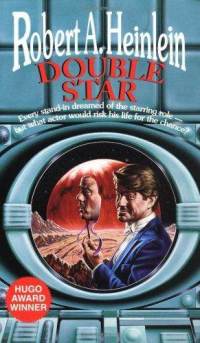
Robert Heinlein’s first Hugo Award winner was Double Star, a work that garners him far less attention today than his other Hugo winners. A reading of the novel will make obvious the reason for this: it is simply not as good. This is not to say that the book is poor, but for it to have won the Hugo Award in 1956, one must suppose either that it was a weak year for science fiction or that giving it the award was a mistake, akin to giving the Oscar to American Beauty or Shakespeare in Love.
It is something of a mystery to me why the novel does not amount to much. The protagonist has a distinct and interesting personality and the idea for the story holds promise. The prose is spare but efficient as you would expect from a Heinlein piece. What went wrong is that the plot is underdeveloped, a fault that would seem to be easily avoided, especially with a veteran author if he cares enough to put the effort into it. A writer needs to squeeze out of a story idea its potential, like one wrings the juice from an orange, and this is not achieved in Double Star. Given that The Puppet Masters came out a few years earlier, its weakness cannot be explained by an author who had yet to come into his own as a storyteller.
The main character is Lorenzo Smythe, an actor in the middle of some lean times but who preserves his pride and thespian affectation, though not to the point of becoming a caricature. He is offered a top secret job to impersonate a kidnapped Martian politician, Joseph Bonforte, until the man can be recovered. At stake is the peaceful equilibrium of human society.
[continue reading…]
Help Promote Prometheus Unbound by Sharing this Post
In a recent addition to The Libertarian Tradition podcast series, part of the Mises Institute’s online media library, Jeff Riggenbach discusses The Ambiguous Utopias of Ursula K. Le Guin and Samuel R. Delany.
You can also read the transcript, which was published on Friday as a Mises Daily article.
In the podcast, Riggenbach discusses Le Guin’s novel The Dispossessed: An Ambiguous Utopia and Delany’s novel Triton: An Ambiguous Heterotopia.
Help Promote Prometheus Unbound by Sharing this Post
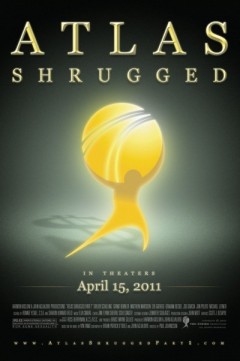
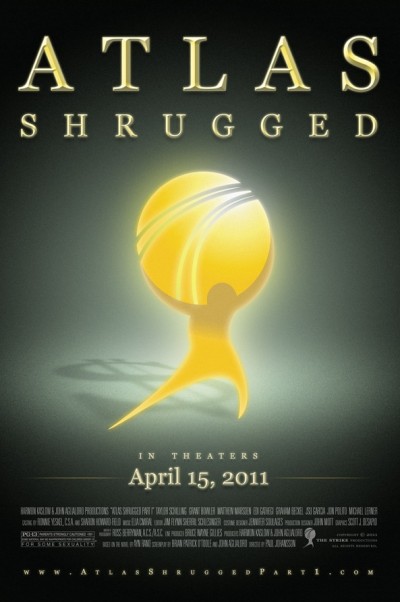 In Ayn Rand’s novel Atlas Shrugged, the first time we meet Dagny Taggart is on the Taggart Comet. The scene comes alive as Rand’s pen reveals the details such that the reader feels as if he is there. When Dagny awakens from a nap to discover the train has stopped, she gets off to investigate. Ayn Rand writes:
In Ayn Rand’s novel Atlas Shrugged, the first time we meet Dagny Taggart is on the Taggart Comet. The scene comes alive as Rand’s pen reveals the details such that the reader feels as if he is there. When Dagny awakens from a nap to discover the train has stopped, she gets off to investigate. Ayn Rand writes:
There was a cold wind outside, and an empty stretch of land under an empty sky. She heard weeds rustling in the darkness. Far ahead, she saw figures of men standing by the engine—and above them, hanging detached in the sky, the red light of a signal.
I have often thought Rand would have made an excellent director, and in that single paragraph we can see some of her talent. She appeals to three senses and evokes compelling images in our heads. A director, location scout, sound engineer, set designer, and cinematographer intent on filming such a scene have half their work done for them already. Let us hear the weeds but not see them; let us see Dagny shiver once and hold her coat tighter to her body; let us see a long shot of silhouettes of men bathed in red light from the stoplight that seems to float in the dark sky above them. The appropriate shots present themselves, practically instructing the director.
Before the stop, Dagny hears a brakeman whistling a tune she just knows was composed by Richard Halley.
“Tell me please what are you whistling?”
…
“It’s the Halley Concerto,” he answered, smiling.
“Which one?”
“The Fifth.”
She let a moment pass before she said slowly and very carefully, “Richard Halley wrote only four concertos.”
The boy’s smile vanished… “Yes, of course,” he said. “I’m wrong. I made a mistake.”
This early scene, which I find excellent and a great mood setter for the rest of the book, is absent from the movie. So too is any trace of the talent for storytelling present in it.
[continue reading…]
Help Promote Prometheus Unbound by Sharing this Post
In a recent addition to The Libertarian Tradition podcast series, part of the Mises Institute’s online media library, Jeff Riggenbach discusses Friedrich Hayek and American Science Fiction.
You can also read the transcript, which was later published as a Mises Daily article.
In the podcast, Riggenbach discusses the dramatization of Austrian economist Friedrich Hayek’s ideas in William Gibson’s novel Pattern Recognition and Alfred Bester’s short story “Time is the Traitor.”
Help Promote Prometheus Unbound by Sharing this Post
When I wasn’t paying attention Jeff Riggenbach did two more audio podcasts on libertarianism and science fiction in his series for the Mises Institute, The Libertarian Tradition. Here is one, a followup on the previous podcast on libertarian science fiction.
You can also read the transcript, which was later published as a Mises Daily article: “Some Further Notes on Libertarian Science Fiction.”
In the podcast, Riggenbach discusses Anthony Burgess’s novel A Clockwork Orange and several novels by Philip K. Dick (including The Man in the High Castle, which our own Matthew Alexander recently reviewed) as well as two nonfiction books.
Help Promote Prometheus Unbound by Sharing this Post
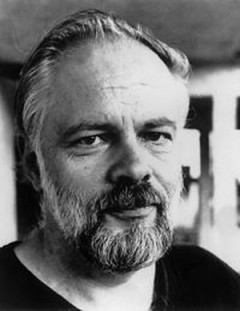
Author Philip K. Dick
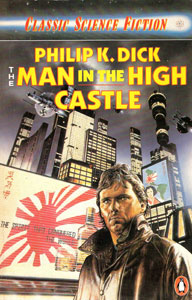
It seems to me that of the two most important elements of a story, plot and character, plot seems to be more masculine and character more feminine. That is to say, a story for men, if it skimps on either of the two, is more likely to skimp on character, while a story for women will shortchange the plot. The best stories, of course, are strong in both categories. Science fiction, being a more masculine genre — in fact the only genre of fiction whose readership is more male than female — has traditionally been solid on plot and hit or miss with the characters. There are exceptions, as one would expect, and Philip K. Dick’s The Man in the High Castle, a Hugo Award winner, is one of these.
The story takes place in what was the present day when the novel was written, 1962, but in an alternate timeline where Nazi Germany and Imperial Japan won World War II. The United States has been carved into puppet governments; Germany has sent astronauts to Mars, drained the Mediterranean for farmland and committed multiple genocides; Japan controls the west coast of North America, having become a cultural as well as political hegemon.
It is a marvelous setting, both in conception and in description. Dick’s prose makes it come alive with a few deft touches here and there, sparse but effective. Whereas in most stories the setting serves as a place for the plot to take place, the reader here gets the sense that the plot is just something to have happen in the setting. The world and its characters are the point; what they do in the narrative has less importance.
[continue reading…]
Help Promote Prometheus Unbound by Sharing this Post
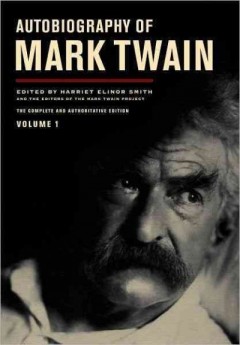
Good things come to those who wait, the old adage goes, and the world has waited a century for Mark Twain’s autobiography, which, in Twain’s words, is a “complete and purposed jumble.” But this 760 page jumble is a good thing. And well worth the wait.
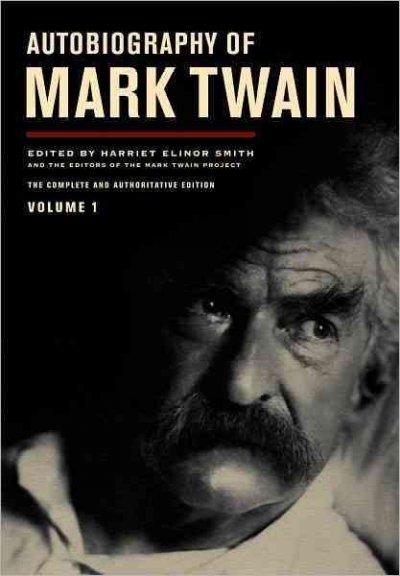 Twain, or Samuel L. Clemens, compiled this autobiography over the course of 35 years. The manuscript began in fits and starts. Twain, while establishing his legacy as a beloved humorist and man of letters, dashed off brief episodes here and there, assigning chapter numbers to some and simply shelving others. In 1906, he began making efforts to turn these cobbled-together passages into a coherent narrative. He even met daily with a stenographer to dictate various reflections and then to compile them into a single, albeit muddled, document. The result was a 5,000 page, unedited stack of papers that, per Twain’s strict handwritten instructions, could not be published until 100 years after his death.
Twain, or Samuel L. Clemens, compiled this autobiography over the course of 35 years. The manuscript began in fits and starts. Twain, while establishing his legacy as a beloved humorist and man of letters, dashed off brief episodes here and there, assigning chapter numbers to some and simply shelving others. In 1906, he began making efforts to turn these cobbled-together passages into a coherent narrative. He even met daily with a stenographer to dictate various reflections and then to compile them into a single, albeit muddled, document. The result was a 5,000 page, unedited stack of papers that, per Twain’s strict handwritten instructions, could not be published until 100 years after his death.
To say that we’ve waited a century to view this manuscript is only partially accurate because pieces of the manuscript appeared in 1924, 1940, and 1959. But this edition, handsomely bound by the University of California Press, and edited by Harriet Elinor Smith and others of the Mark Twain Project, is the first full compilation of the autobiographical dictations and extracts to reach print. The editors, noting that “the goal of the present edition [is] to publish the complete text as nearly as possible in the way Mark Twain intended it to be published before his death,” explain that “no text of the Autobiography so far published is even remotely complete, much less completely authorial.” The contents of this much-awaited beast of a book, then, are virtually priceless, and no doubt many of the previously unread or unconsidered Twain passages will become part of the American canon.
Stark photographs of the manuscript drafts and of Twain and his subjects — including family members and residences — accompany this fragmentary work. The lively and at times comical prose is in keeping with the rambling style of this rambling man whom readers have come to know and appreciate for generations. Would we have expected any less?
[continue reading…]
Help Promote Prometheus Unbound by Sharing this Post















